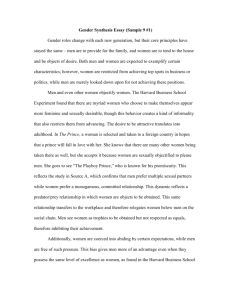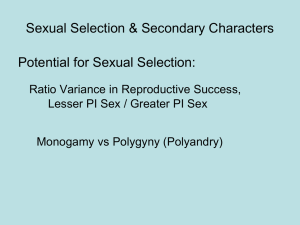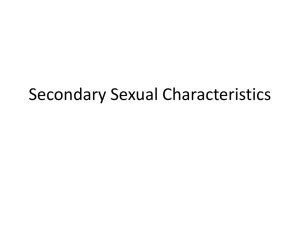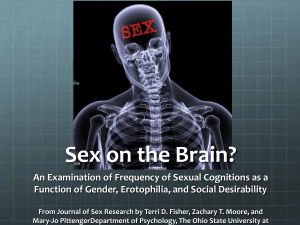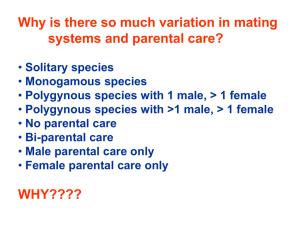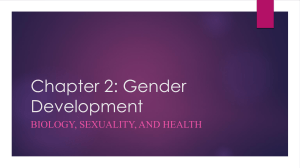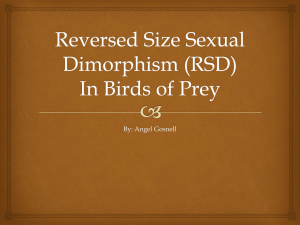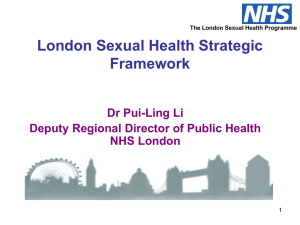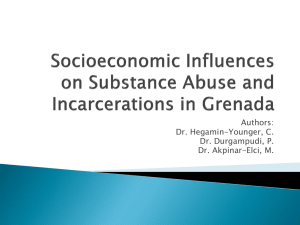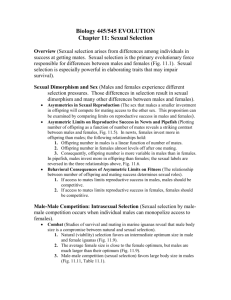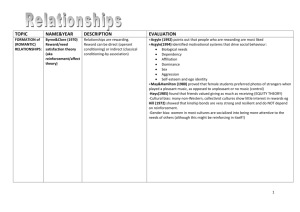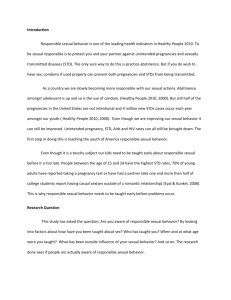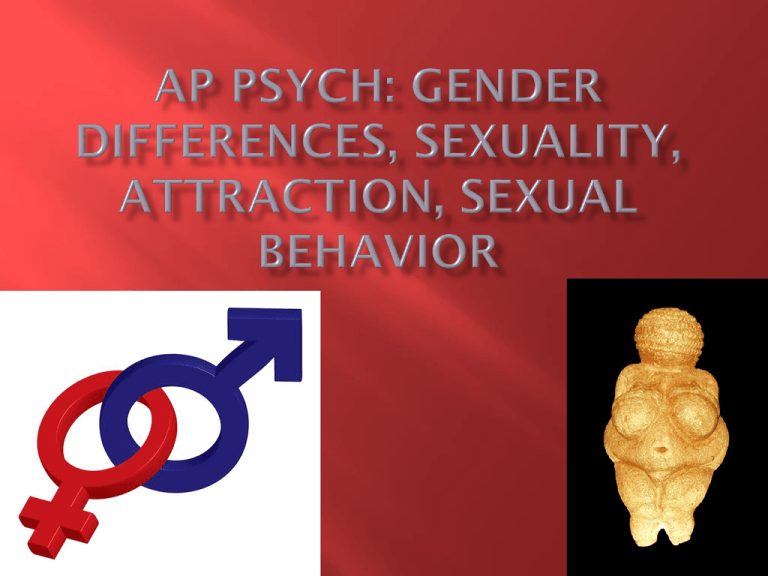
Aggression – Males tend to show overt
aggression (conduct disorders) while females
tend to be more relationally aggressive (social
aggression).
Cognitive Differences – Shrinking gap in job
disparity in science and engineering
Gender Similarities Hypothesis – Gender’s are more
similar than they are different.
What factors influence choice (like career) in gender?
Sexuality – How people experience and express
themselves as sexual beings.
Activity Involved with sexual pleasure
Society says…..
Women be selective, men not so much
Clark and Hatfield Study (FSU, 89’)
Female and Male actors sent to approach member of opposite
sex and say the following “I have been noticing you around
campus, I find you very attractive.” This would be followed
by one of the following:
Would you like to go on a date with me?
Would you like to go to my apartment with me?
Would you like to go to bed with me?
Question 1:
Question 2:
Males =50%
Females = 55%
Males = 70%
Females = 5%
Question 3:
Males = 77%
Females = 0%
Other studies have shown similar results, and
no differences in homosexual and heterosexual
relationships
Males tend to have more partners over a lifetime
Other studies have shown that males report more
frequent feelings of sexual arousal, prone to lust
more, have more frequent fantasies, and rathe the
strength of their own sex drive higher than women
do.
Is culture a factor here?
What about evolution factors? (Females have enhanced
information recall)
Women tend to show more changes in their
sexual patterns and desires over a lifetime
i.e. Mixed partners
Men are more particular when it comes to targets of
attraction according to recent studies measuring
biologically arousal
Emotion, memory, vision, hearing, olfaction,
social perception, pain perception, spatial
skills, verbal skills, neurotransmitter levels, and
many disorders are linked to gender.
Hormones and social learning affect brain
development
Males have a larger Amygdala, more sex
hormone receptors, and excitatory
synapses/neurons than females (80%)
Women have the ability to retain more emotional
memory (Vivid)
Hippocampus – reacts differently in males and
females when under stress of conditioning
(females have dominant left, males right)
Studies could indicate that neurochemically
men and women learn differently.
Males brain shown to have stronger
connections between the front and back
regions, women stronger between left and
right. (Perception vs Social Skills)
Prominent after puberty
Sexuality is driven by genetics and the activity in
the brain.
Society, Culture, Family, Educational, and
Environment work to moderate the biological
drives
John Locke’s blank slate
Together, the two play a strong role in the
formation of personal identity
Freud believed they were the central source of human
personality
Different than all other animal species
More factors involved
Not just for reproduction
Sexual behavior and performance is affected by
inability to detect sexual stimuli, label a situation
wrong, or misattribute the stimuli.
Humans are educated by the parents
Alfred Kinsey – Father of sexology. Kinsey
Reports
50% of men unfaithful
9% of population bisexual
Newer studies have shown that monogamy tends to
rule sexual behavior
75-85% remain faitful
Hard to define what sex actual is?
Sexting? For Reproduction? Lack of arousal?
Is it based on individual perception, experience,
intimacy?
Controls all nerve impulses from the skin and
responsible for pleasurable sensations
Regulates hormones which are believed to be
the origin of sexual desire
Cerebral Cortex controls sexual thoughts and
fantasies
Limbic System (Amygdala) regulate the
emotions and feelings that are important for
sexual behavior
Masters and Johnson sex studies – Sexual
Response cycle –
Excitement, Plateau, Orgasm, and Resolution
Hypothalamus – Most important part of the
brain for sexual functioning
Received input from limbic system
Destroy the hypothalamus, destroy sexual behavior
Next to gland which regulates oxytocin, prolactin,
etc.
Freud – Erogenous Zones, psychosexual
development, complexes.
Behaviorists – Consequences and their
ramifications. How does early punishment and
rewards effect feelings towards sex?
Cognitive – Modeling and thoughts during
experiences
The Direction of erotic interests
Includes behaviors, desires, feelings, fantasies, and a
person’s sense of identity.
Before the High Middle Ages, homosexual acts appear to
have been ignored or tolerated by the Christian church.
During the 12th century however, hostility toward
homosexuality began to spread throughout religious and
secular institutions.
By the end of the 19th century, homosexuality was viewed
as a pathology.
Freud and the resolution Oedipus Complex stated that
anybody can be homosexual based on.
He believed that male homosexuality resulted when a young boy
had an authoritarian, rejecting mother and turned to his father for
love and affection and later to men in general.
He believed female homosexuality developed when a girl loved
her mother and identified with her father and became fixated at
that stage.
Homosexual behavior has been observed in
1,500 different species (Rats, primates, giraffes,
guppies, ostriches, etc.)
Long term relationships in male penguins.
The origin of sexual orientation is an issue
hidden in darkness.
No correlations between style of parenting and
behavior
Experimentation in childhood has shown no
correlation
So where do we stand?
Sexual Orientation cannot be explained
Twin studies have shown that genes are not a strong
influence
Thickness of the corpus callosum and symmetry
between the hemispheres has been correlated with
homosexual behavior.
Non-conforming behavior at an early age
2d:4d ratio and prenatal hormones (testosterone)
Testosterone relation to a brain that is attracted to
females or males? Smaller 2d:4d ratio?


